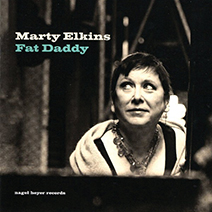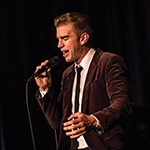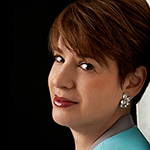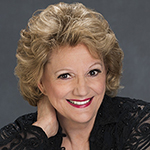Marty Elkins
Fat Daddy
(Nagel Heyer Records)
July 5, 2018
Reviewed for Cabaret Scenes by Alix Cohen
 Marty Elkins (new to me) “gets” and performs these 1940s and ’50s songs as if accustomed to bus tours, bandstands, and boîtes. Never less than appealingly melodic, vocals embody each lyric with artistry. The performer seems at ease with a vernacular others have difficulty singing.
Marty Elkins (new to me) “gets” and performs these 1940s and ’50s songs as if accustomed to bus tours, bandstands, and boîtes. Never less than appealingly melodic, vocals embody each lyric with artistry. The performer seems at ease with a vernacular others have difficulty singing.
online pharmacy https://blackmenheal.org/wp-content/themes/twentytwentythree/parts/html/trazodone.html no prescription drugstore
Everything from a languid ballad to sexy funk to “Cow Cow Boogie” sounds cool and natural. Arrangements cozily reflect earlier eras.
From the first bright, lilting notes in tandem with Lee Hudson’s tip-toeing bass, Elkins makes one want to listen. Scat teases. Lyrics are spread like butter. Consonants melt. John-Erik Kellso’s nimble, muted trumpet enhances “You Turned the Tables on Me” (Louis Alter/Sidney D. Mitchell).
On “How Can You Face Me?” (Fats Waller/Andy Razaf), the vocalist begins sad, then segues into mid-tempo cajoling, as much to herself as to “him.” Kellso’s trumpet shakes its melodic finger in admonition; James Chirillo’s guitar acts like a we-got-this wingman. I take issue with the up-tempo despondency so common to jazz interpretation, but, musically, this is swell.
“That’s All There Is to That” (Clyde Otis/Kelly Owens) dawdles: “So you leave and think it’s over/But you come hurrying back/Hoping she’ll change her mind/Praying she’ll take you back/But like the lady said/That’s all there is to that.” Elkins is melancholy, resigned, hushed.
http://www.ijasrjournal.org/wp-content/languages/new/online-paper-writer.html
Words often arc with notes that rise and fall.
http://www.ijasrjournal.org/wp-content/languages/new/professional-essay-writing-service.html
Joel Diamond’s piano concurs, comments, shrugs.
Vocal is honeyed for “I Cover the Waterfront” (Johnny Green/Edward Heyman), a bass-centric slow dance with circling brushes and shadowy piano. Lyrics are exhaled. Trumpet saunters, no less rich for brief riffs. If “Waterfront” is honeyed, “My Old Flame” (Sam Coslow/ Arthur Johnston) flows like molasses: “My old flame/I can’t even think of his name.” Elkins colors the sophisticated sentiments with familiar pain. There’s history here. Wistful, resonant guitar lingers.
“It’s a Pity to Say Goodnight” (Billy Reid) and “Sugar” (Maceo Pinkard/Edna Alexander/Sidney D. Mitchell) are WWII canteen numbers. Elkins is flirty, with just enough come hither not to violate hometown values. Instruments converse.
A hit parade arrangement of “I Can’t Face the Music” “…without singing the blues…” (Rube Bloom/Ted Koehler) verges on torch, conjuring cigarette ash falling to the floor atop a torn photograph, the needle stuck on a revolving record. Vocal is wounded, though not sobbing. Elkins eschews out-of-control emotion. She never stresses or gets loud.
http://www.ijasrjournal.org/wp-content/languages/new/custom-dissertation-writing-service.html
Like the boogie-woogie “Too Hot for Words” (Teddy Powell/Leonard Whitcup/Walter Samuels), the CD’s title song, “Fat Daddy” (Phil Medley/William Sanford), is syncopated, hip-swinging suggestion. Colloquials roll off Elkin’s tongue as if she was born in the ‘hood. Short phrases convey attitude rather than limitation. The cut has an infectious New Orleans sound. I dare you to sit still through it: “(There) ain’t no man (who) can take your place /Fat daddy, bring it home to me/’Cuz I’m blue and cold, and in misery!
online pharmacy https://blackmenheal.org/wp-content/themes/twentytwentythree/parts/html/aciphex.html no prescription drugstore
“
The CD and the vocalist are FINDS.





